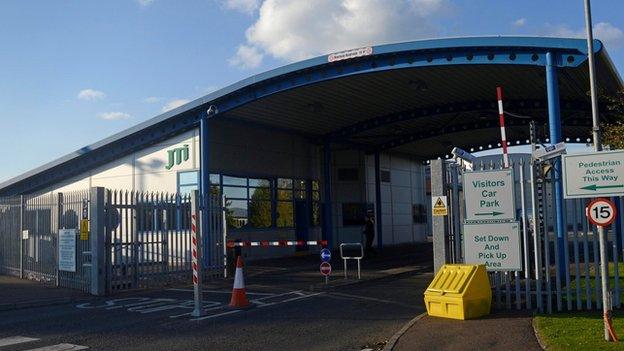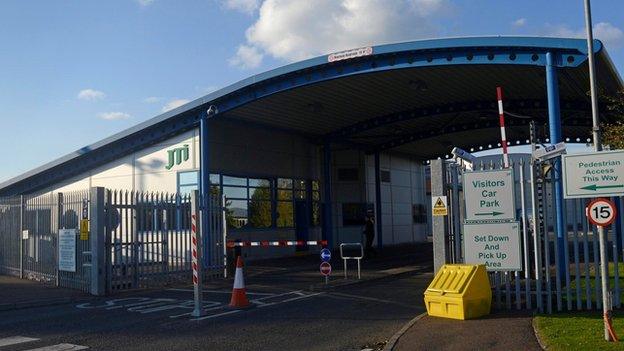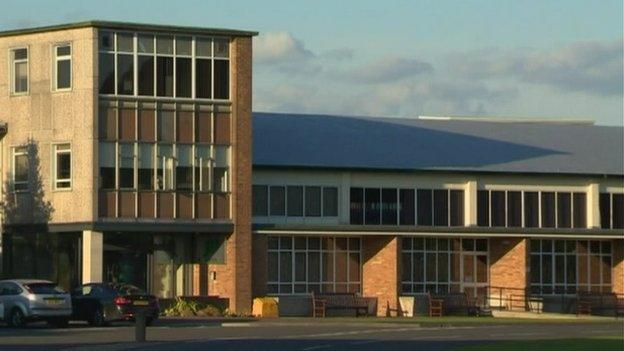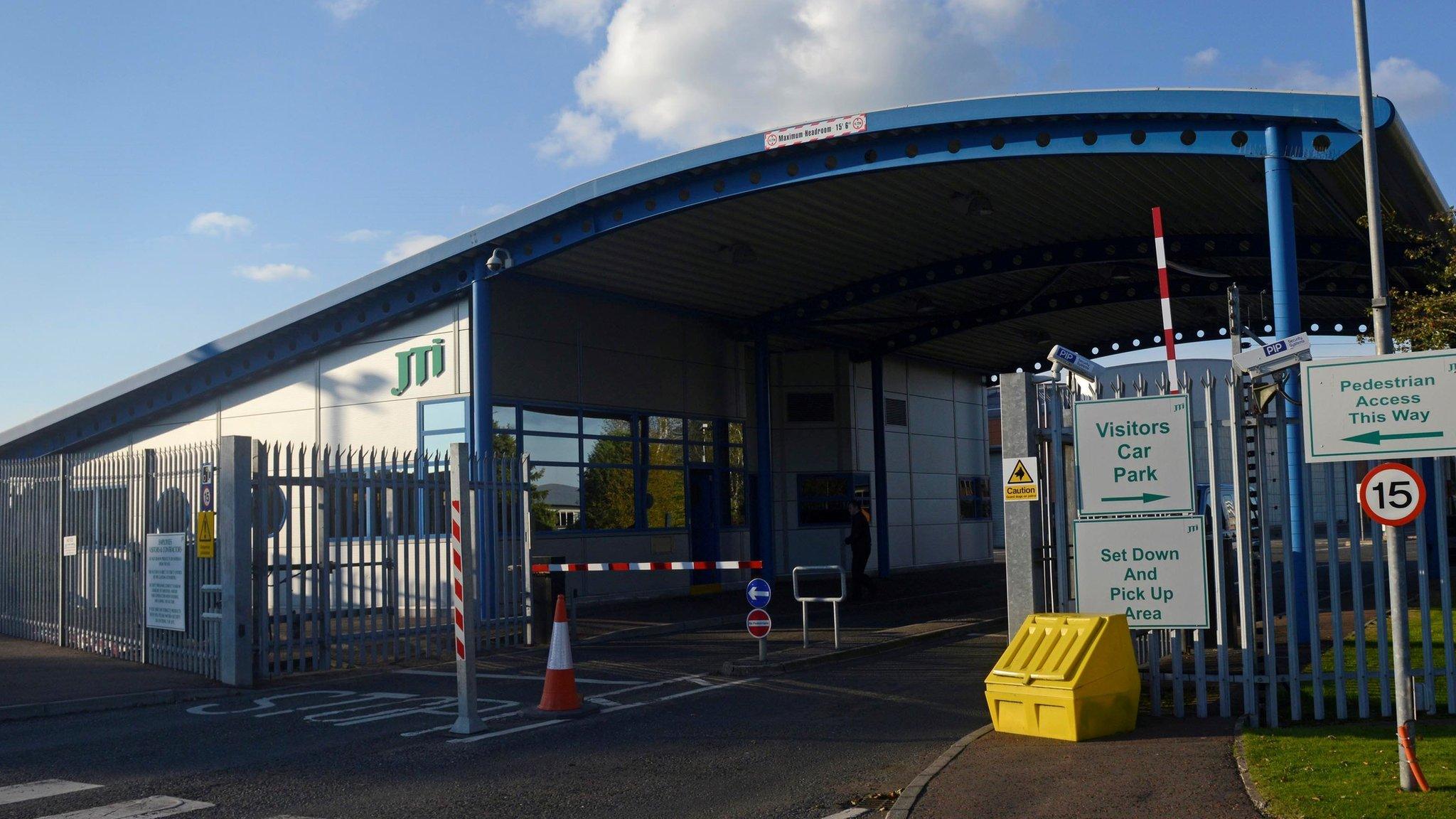JTI Gallaher: Firm confirms closure after management reject plan to retain jobs
- Published

The JTI Gallaher tobacco factory is a major employer in Ballymena, but it is closing by 2017
A trade union proposal aimed at saving jobs at a tobacco factory in Ballymena, County Antrim, has been rejected.
The move was confirmed after JTI Gallaher turned down the plan to save about 500 of those jobs.
Unite had proposed turning the factory into a centre of excellence for pouch tobacco and cigar production, meaning about 370 redundancies.
JTI Gallaher employs about 870 staff, but will shut down completely by 2017.
The union had said the redundancies would be voluntary, under its proposal.
Unite balloted its members last year, and they voted to support the plan.
North Antrim MP Ian Paisley said it was disappointing that the closure of the factory had been confirmed.
On Wednesday, Unite regional secretary Jimmy Kelly said he was angry at the rejection of their plan.
He described the decision to close the factory as "an extreme case of social dumping where employers seek to minimise costs through chasing lower cost alternatives".
"The choice to close JTI's plant at Ballymena but leave production in Trier, Germany, reflects the fact that social protections for workers in Northern Ireland, and the UK as a whole, are substantially weaker than in Germany," he said.
"It boils down to the fact that it is much cheaper for the company to make a UK worker redundant than a German one."
Mr Kelly called for immediate action from political leaders to put in place increased protection for UK workers and said Unite would now focus on securing compensation for its members at the Ballymena factory.
North Antrim MP Ian Paisley said it was disappointing that the closure of the factory had been confirmed.
'Bureaucracy'
He said he had continued to lobby the UK government to reconsider the introduction of plain-packaging and delay the European Union's Tobacco Products Directive.
However, he said "the die has been cast and the tentacles of european bureaucracy have reached in and stripped this factory bare".
He said it was now the responsibility of the relevant government departments to reskill the workers.
In a statement, JTI Gallaher said it was working in a challenging regulatory and operating environment and that it had "fought very hard" against plain packaging proposals in the UK, the EU's Tobacco Products Directive 2 (TPD2) as well as the trade in smuggled cigarettes.
It said its business must "prepare for the negative consequences of these".
The firm added that around 80% of cigarette production at its factory in Ballymena was for the UK and the Republic of Ireland and that from 2009 to 2014, cigarette production there had declined by 27%.
"These declines will be exacerbated by the implementation of TPD2 which bans small packs - 81% of our current pack formats will be prohibited, which means that 40% of the overall production at Lisnafillan will be affected," it said.
The factory has been a major employer in Ballymena, but in October, the firm began consultations on proposals to close its facilities in Northern Ireland and Belgium, with production possibly moving to Poland and Romania.
The firm said at that time its restructuring would be phased in, with factory closures completed between 2016 and 2018.
When Unite first unveiled its alternative plan in November, it warned it would mean "significant concessions in terms and conditions", as well as the large-scale redundancies.
However, it said that would have to be seen in context of the threat of "total loss of all employment at the plant".
- Published22 January 2015

- Published19 November 2014

- Published21 October 2014

- Published7 October 2014
